What Gives Something "Value?" — LeoFinance, Hive, Bitcoin, Automobiles and Zimbabwean Dollars
Earlier today, I faced a question I have often had to answer, ever since getting involved with the crypto world. An online acquaintance — who knows I'm somewhat familiar with Bitcoin and cryptocurrencies — had read that BTC had recently made it to $40,000.
"That's pretty cool, I guess," he said, "but I just don't understand how that can have any VALUE. It's just a bunch of computer calculations!"
This, of course, led to a broader philosophical exploration of the entire notion of "value."
We went down the usual rabbit holes, including the fact that most ostensible "valuable" things have relatively little intrinsic tangible value, if any at all.
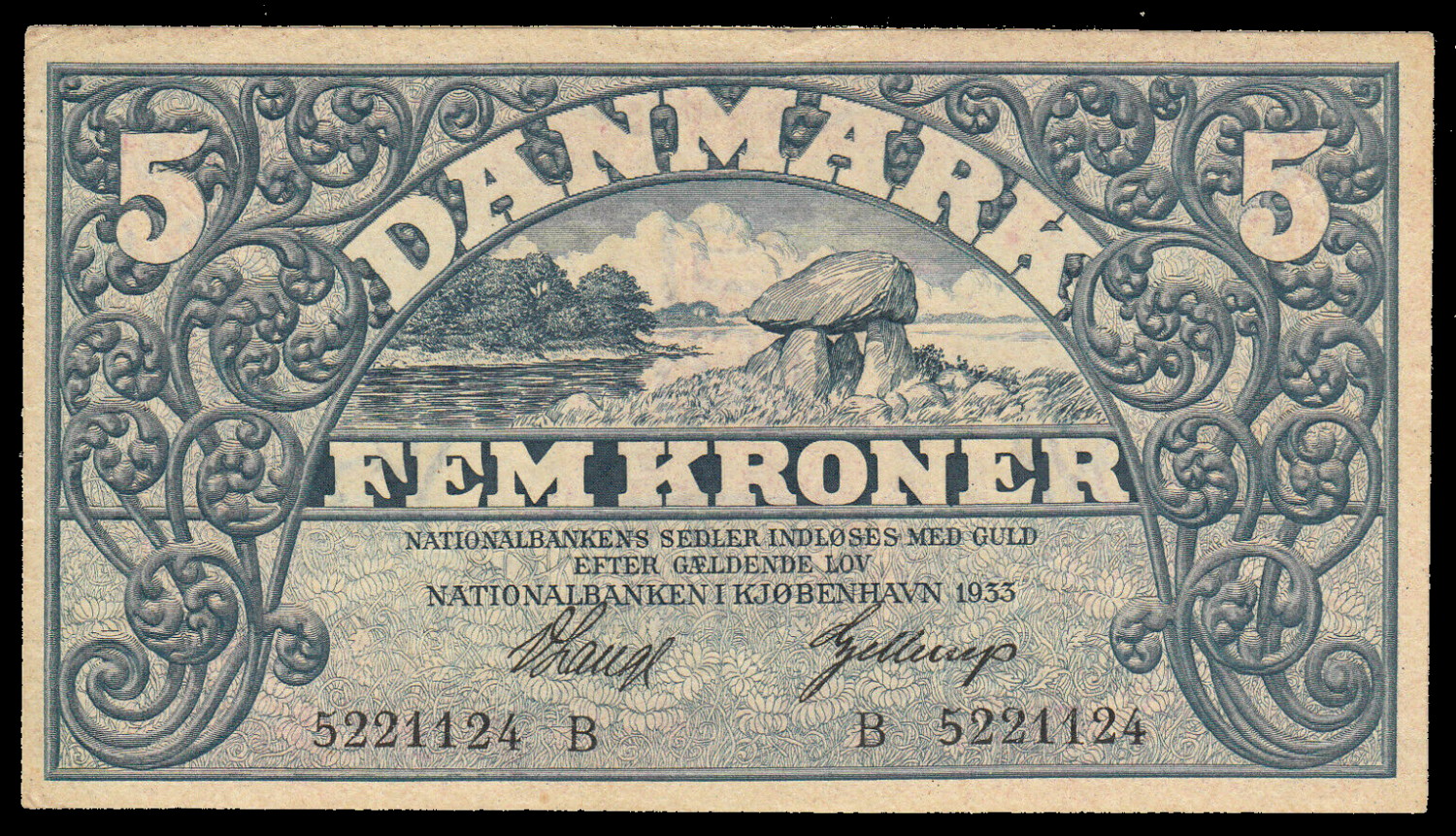
Danish 5 kroner bank note from the 1930's. It's worth a LOT more now, than in 1930, because now it has become collectible.
Tangible and Intangible Value
Ultimately, a loaf of bread has value because I get hungry. Same with a banana, or a piece of fish. Clothing has value because I'd get damn cold without some. Shelter has value, as well, because I don't want to live in a cardboard box. That's the sort of "value" we can all see and readily agree with.
Fast forward to the fact that a $100 bill doesn't really hold much value in the tangible sense: it's too small to build anything with, and too small to burn for much warmth... and 100% rag cotton paper doesn't burn worth a damn, to begin with.
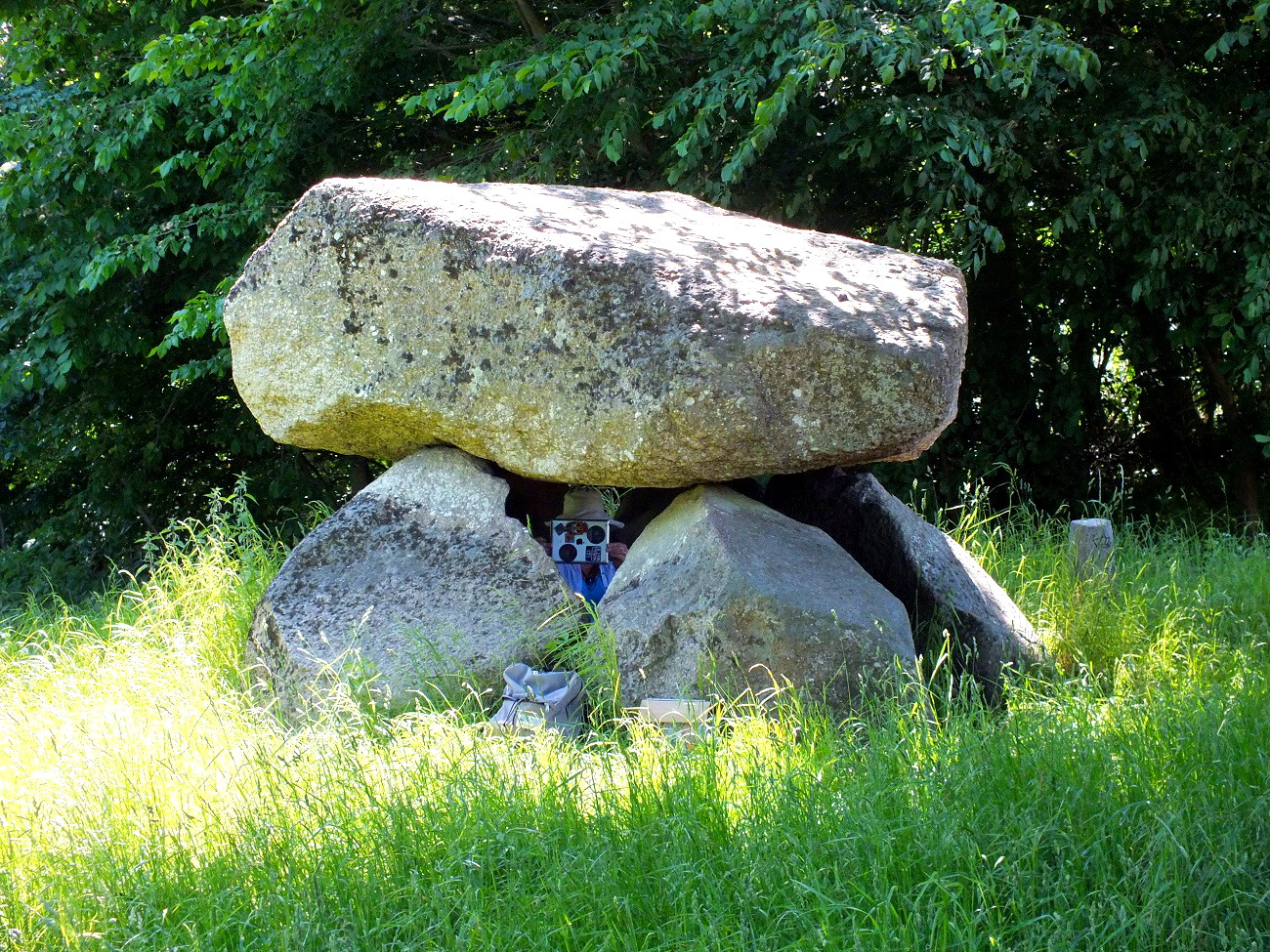
The ACTUAL Standing Stone depicted on the banknote, above. My wife is sitting inside it, taking a picture of me, taking a picture of her...
So the $100 bill only has value because we operate under a set of agreements that it has representative value.
My friend's argument about Bitcoin and value ultimately ended at "how can a bunch of computer calculations have VALUE?" I pointed out to him that even though we have $100 bills to represent this thing we call money, ultimately the way we conduct most of our financial transactions are just as "invisible" as a Bitcoin. Just a bunch of computer calculations.
Does "Value" Even EXIST?
I always get around the whole "Yeah, but it (fiat money) is issued by a GOVERNMENT or NATIONAL BANK" issue by showing people this — which was also issued by a National Bank.
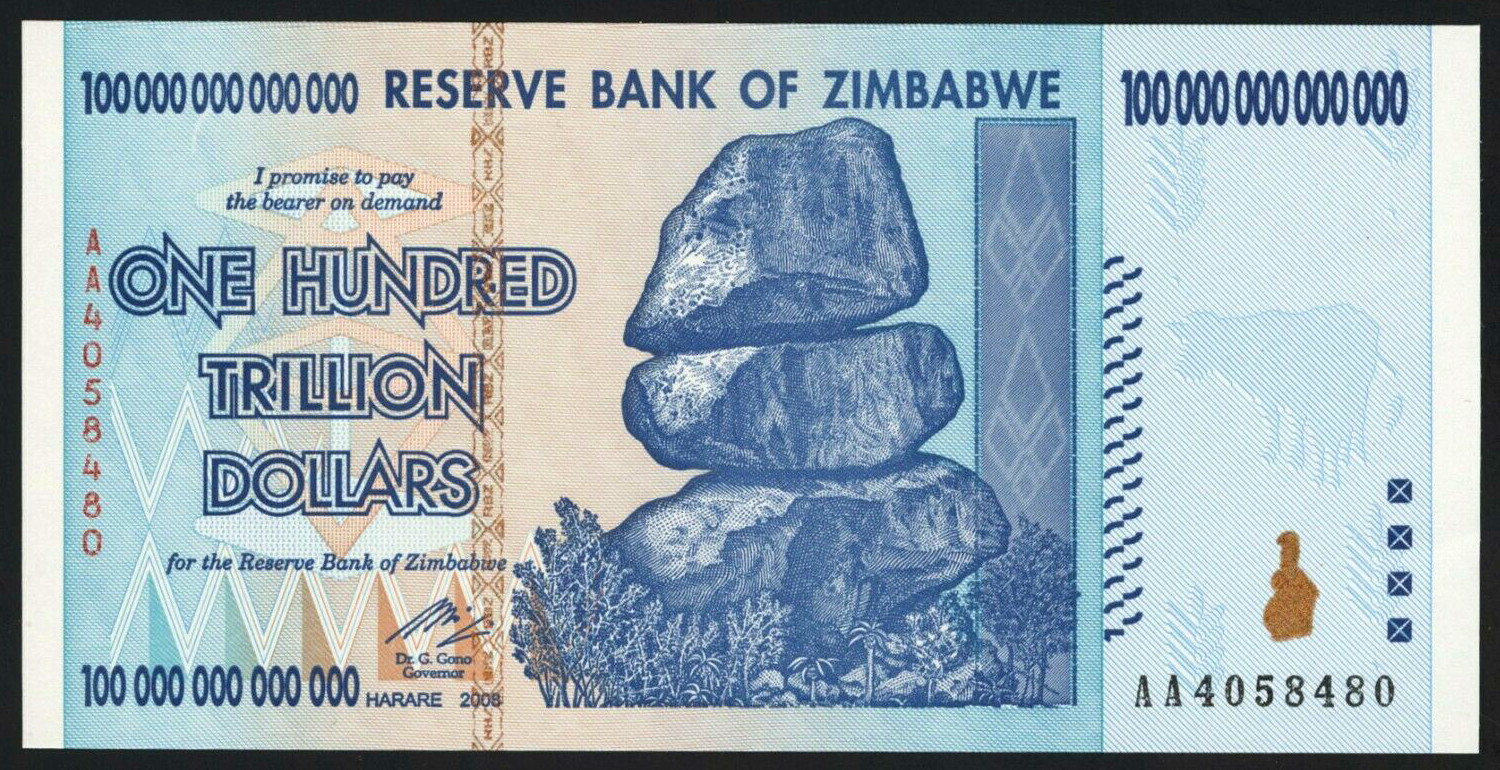
That's "real money," too. But it has NO value.
In spite of my being able to make you an "instant trillionaire," that didn't mean it had value, primarily because the agreement that it had value had broken down. It more or less became just "a little piece of blue paper with a picture of standing stones."
So we got to the inevitable "but what if people no longer agree that Bitcoin has VALUE?" intersection.
Of course, that's not easy to answer. Let's suppose alien invaders blow a huge globe-spanning EMP our way and there's suddenly no more electricity and no more Internet. At that point, BTC is pretty worthless. But that would apply to our entire system of monetary trading, though... we'd be back to bartering "bread and salt for bullets" and such.
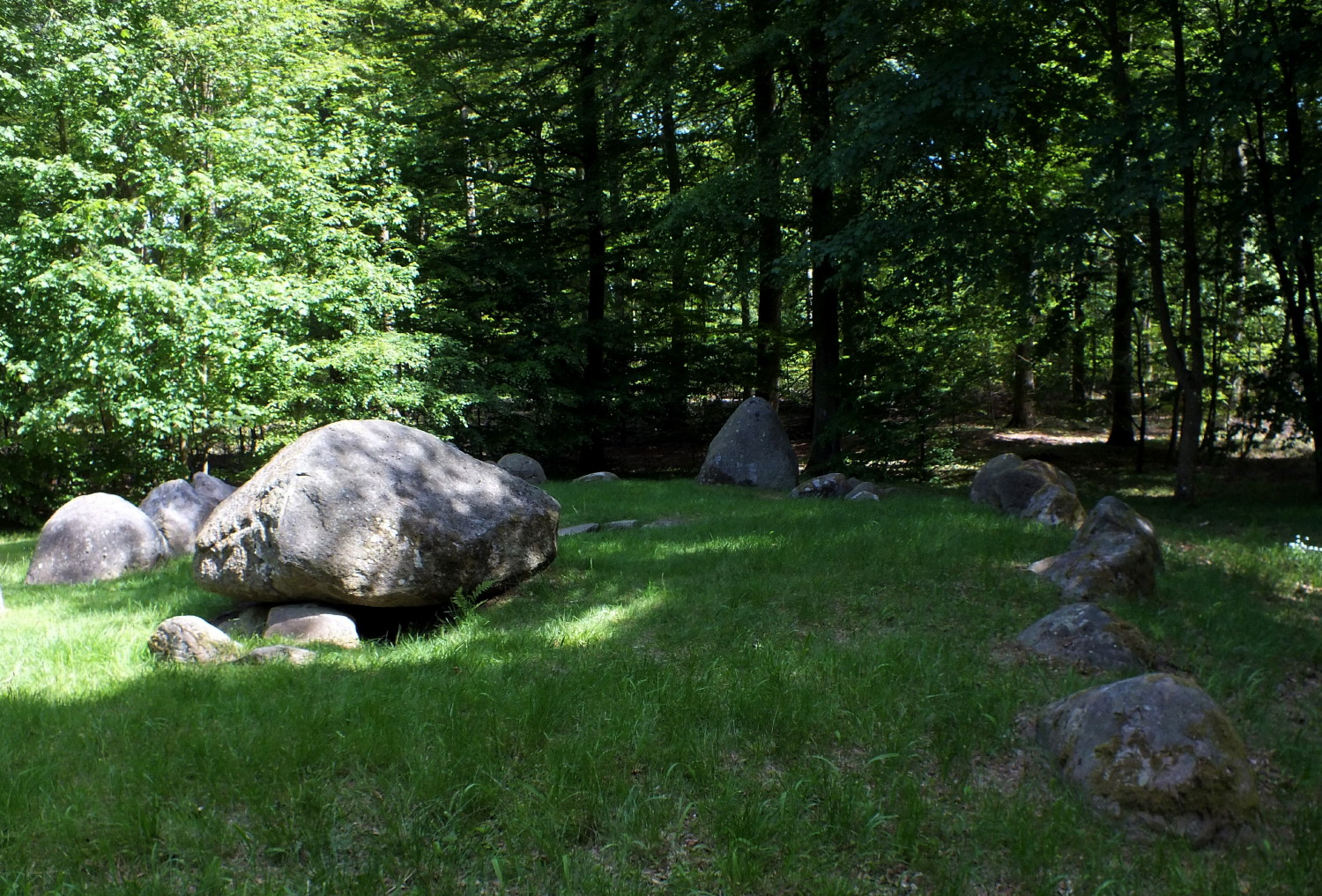
A stone circle in the woods, in Denmark, neolithic age.
If the World Ends, Then...
And that is — at least in my experience — often where these discussions end. How will a system hold up in case of complete and utter devastation?
But what is the likelihood of complete and utter devastation? An "extinction Level Event?"
Certainly, some survivalist types would like to think it's right around the corner so they can finally get to play "tribal wars in the woods" where only survival of the fittest matters. But from where I am sitting, it's an awful long way from "here" to "there." So that likelihood is pretty remote.
In most cases systems tend to break down gradually and incrementally, and we adapt and change to fit the new conditions, substituting one kind of value for another. A case could be made that we're already slowly doing that by creating cryptocurrencies. It's not that long ago that we were celebrating cryptos reaching an aggregate valuation of $100 billion; now we're at one trillion.
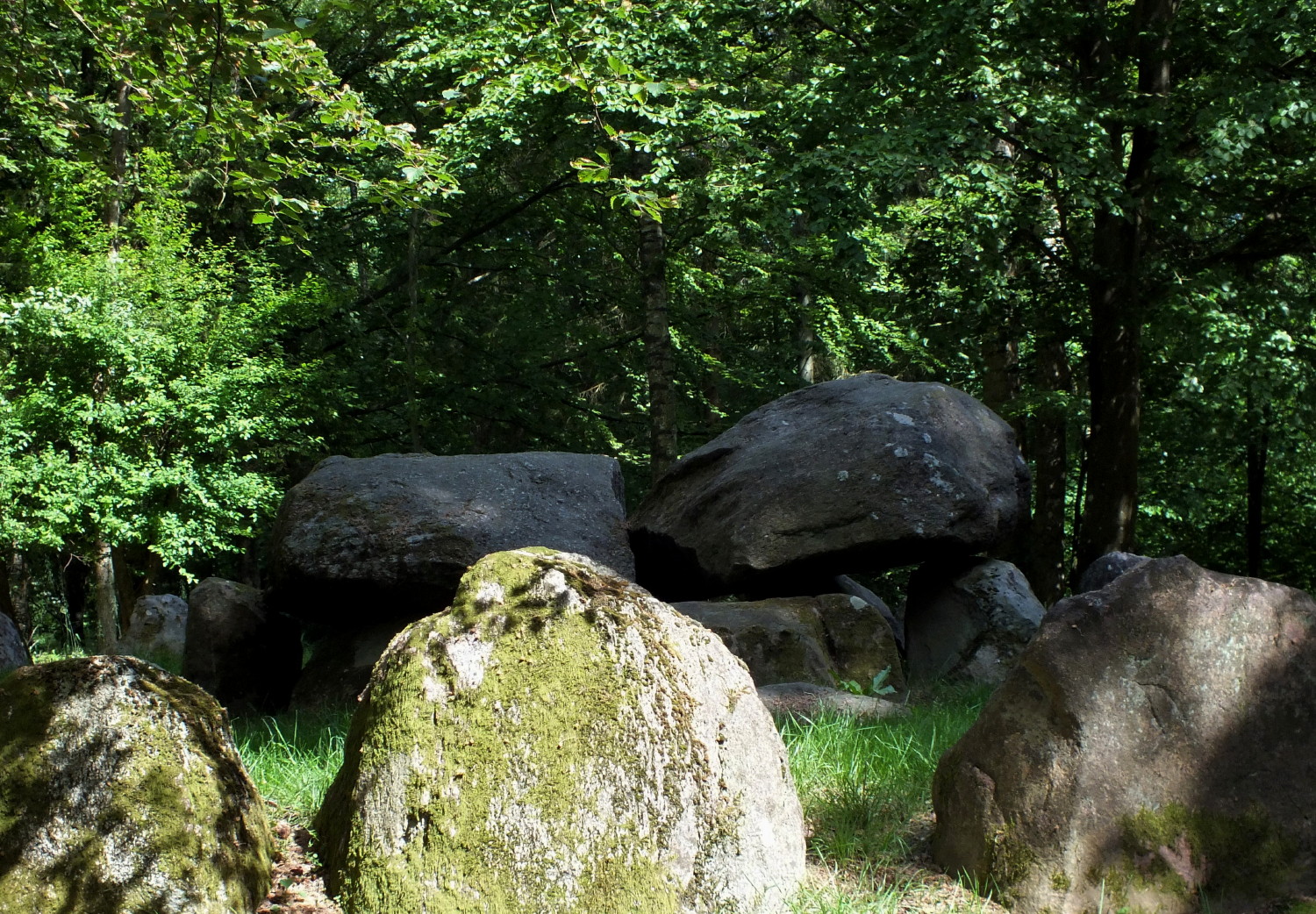
More Danish standing stones...
Adaptation and Change
When the automobile was invented, horses and carriages didn't suddenly become obsolete and worthless overnight; it took several decades, even though the automobile definitely was a massively disruptive technology, at the time. The first cars might have been made in the 1880's, but in reality, in the year 1900, cars were still of very little value to most people, and primarily a "technological curiosity." Yet, by 1930, most horses had been sent out to pasture.
Right now, Bitcoin and cryptocurrencies in general are just trying to get past that "curiosity" point and into the territory of "generally accepted," and even "inevitable," as Elon Musk tweeted a few days ago. Undoubtedly, the cycle from "curiosity" to "full immersion" will be shorter for the Cryptosphere... more like the Internet went from "deep nerd games" for a few hundred thousands in the early 1990's to pretty much "globe spanning immersion" just 30 years later.
Just to continue following the value trail, the Internet might have been touted as "revolutionary" but still had very little value in 1995, but now in 2021 we can't imagine life without it, so almost everyone would agree it has value. And it's not even a means of exchange!
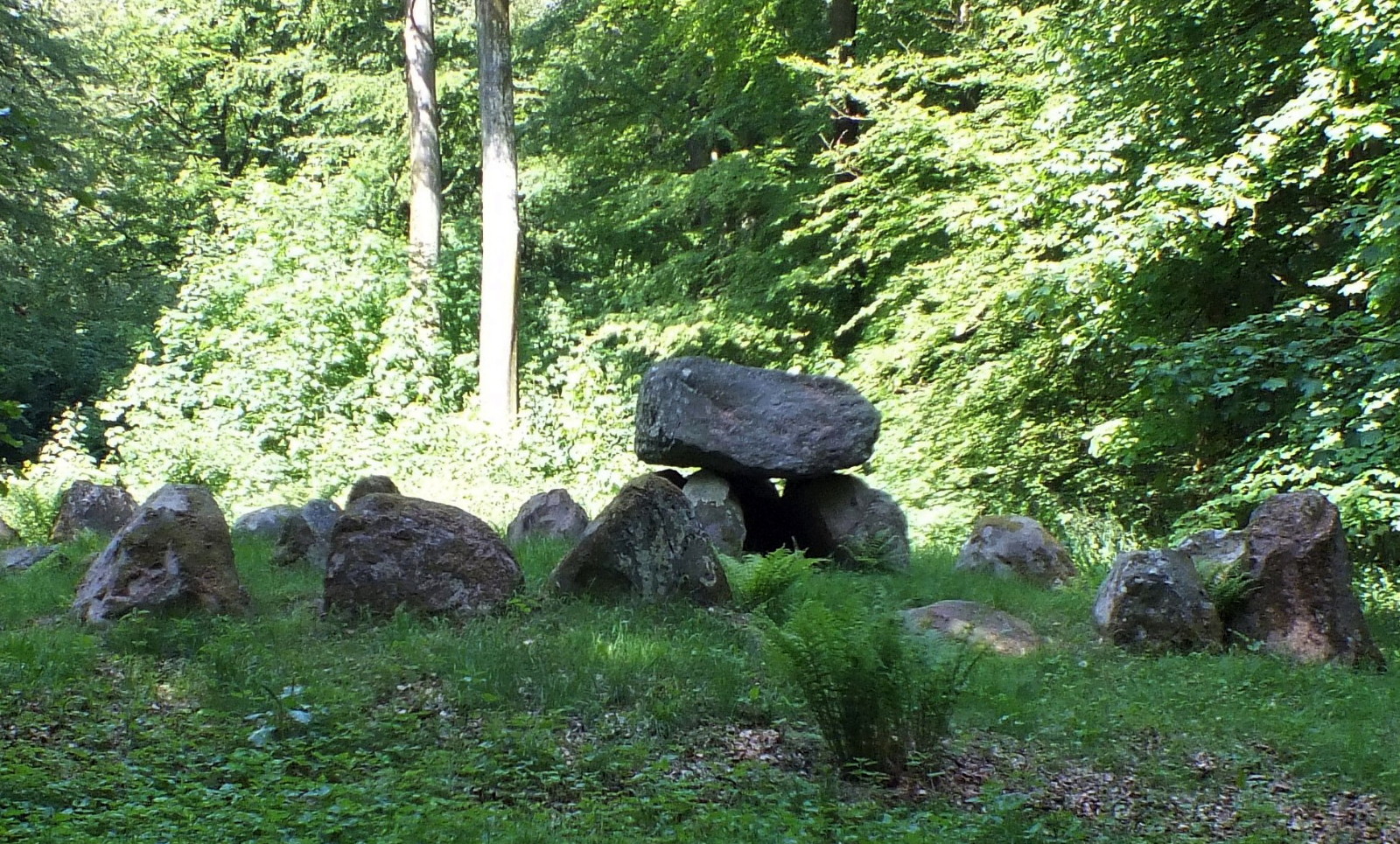
Another henge...
Value and Image Issues
Now, in terms of establishing value the cryptosphere has a bit of an "image issue" to still overcome... being often seen as either "nerd money" or something used criminally for drugs and money laundering. But this is really nothing NEW!
Which reminds me of the circa 2000 Internet, which had a reputation issue for being a place "primarily inhabited by gamers, porn addicts and creepy pedophiles looking to abduct innocent children watching Teletubbies." Goes to show that criticism tends to be harshest in the beginning, because today's Internet is simply a fact of life and most people don't even think of The Internet as a "separate" thing... we think only of what we can do with it as part of our normal lives.
But we had to get from the point where "my mom is on the Internet" was a statement that made early adopters cringe and feel violated to where "my mom is on the Internet" was simply a fact of life.

In the end, life is a beach!
In the image sense, the cryptosphere might face its greatest hurdle in persuading the public that it's an alternative to conventional fiat money in the sense that all the focus these days seems to be not on what you can DO with crypto, but how much money you can make trading it... very much "Old Wall Street Style: Greed is Good!"
Whereas you might like and agree with the notion of an asset you can 10x your money on in a couple of days (like Dogecoin, last week), the inescapable fact is that is that "volatile high risk investments" is a tiny niche market, while "an alternative monetary system" holds potential for everyone.
Somehow, that hurdle will have to be overcome, at some point... by focusing more on the everyday things cryptos can offer us; the everyday VALUE.
Thanks for reading, and have a great week!
How about YOU? How would you characterize "value?" What is the "value" of cryptocurrencies? More "locally," how can Hive, LeoFinance and other communities add value to people's lives in a way that's meaningful to THEM? Comments, feedback and other interaction is invited and welcomed! Because — after all — SOCIAL content is about interacting, right? Leave a comment — share your experiences — be part of the conversation!

Greetings bloggers and social content creators! This article was created via LeoFinance, a blogging application that's part of the Hive Social Content Experience. If you're a blogger, writer, poet, artist, vlogger, musician or other creative content wizard, come join us! Hive is a little "different" because it's not run by a "company;" it operates via the consensus of its users and your content can't be banned, censored, taken down or demonetized. And that COUNTS for something, in these uncertain times! So if you're ready for the next generation of social content where YOU retain ownership and control, come by and learn about Hive and make an account!


(As usual, all text and images by the author, unless otherwise credited. This is original content, created expressly and uniquely for this platform — NOT cross posted anywhere else!)
Created at 20210201 15:22 PST
0171/1414
Posted Using LeoFinance Beta
Rock Is Safe
Look up these Wikipedia
NOTGELD german private currency literally made because of currency shortage made by hand painted in paper notes by neighborhoods and they're still collectors items today and .... there's also wiki on PRIVATE CURRENCY era of 1800s America
Eeal adventures of Johnny quest .. jfk jr
Posted using Dapplr
Ah yes, I happen to be somewhat familiar with Notgeld because I spent many years trading in paper collectibles, particularly old stamps and manuscripts. For a while, people also used "encapsulated stamps" in place of coins. Some Scandinavian towns during WWI also used "town money" in individual municipalities.
The US was somewhat unique because of the geographical size that made currency issued by the local bank of a frontier town the de-facto money there, because the idea of getting federal currency was impractical.
good post!